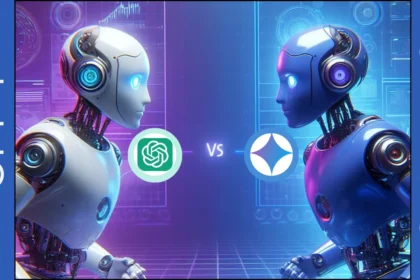Introduction of Quantum Computing
Quantum computing, once limited to science fiction, is quickly becoming a reality in the short term. Because of its immense power, web development is one of the industries that it promises to revolutionize. A new wave of quantum computing startups has been generated as a result of this game-changing technology, leveraging its ability to promote creativity and strengthen particular business models. In the advanced era of technology, a tough competitor is rapidly emerging to take the lead in quantum computing.
Quantum computing is a paradigm shift close to the move from a basic calculator to a high-performance computer to routine technological advancement. Experts predict that quantum computing could command a global market value of $1 trillion by 2035. So, in your thoughts what effects does this have on web development?
How many Quantum Computing Startups Exist?
More than 1000 businesses are actively involved in the quantum computing world, offering full stack solutions, hardware, software, and even supporting services like cryogenic units and cable according to our quantum computing Platforms. Though listing them all would be impossible, let us tell you that 72 exceptional startups are tough industry leaders and pave the way for a quantum future. Let’s take a quick overview of some quantum computing startups to show that they will benefit stories.
Top Quantum Computing startups
- Psiquantum
- Rigetti Computing
- IonQ
- Atom Computing
- D-Wave
- Quandela
- Quantum Circuits Limited
- Planqc
- Universal
- QuantumPASQAL
The impact of quantum computing startups on industries

The computing power of the modern world has hit a tipping point, which raises problems about our ability to maintain the energy needs for the world’s machinery. Quantum computing appears as a possible answer to this upcoming challenge.
The roots of quantum computing date back to 1981 when renowned physicist Richard Feynman asked, “Can we simulate physics on a computer?” at a Massachusetts Institute of Technology conference.
Quantum computing, although not based on physical principles, functions according to the ideas of quantum mechanics, utilizing features like superposition and entanglement. This creative technology opens a level of computing power by tackling the principles of quantum mechanics, a branch of physics that controls the behavior of subatomic particles.
The two key points of quantum mechanics determine it from classical physics :
- Superposition:
It’s not like a classical period, which is limited to one quantum bits, or qubits, which can exist at the same time in both stats. They can allow them to process together leading to exceptional speedups.
- Entanglement:
Regardless of their physical separation, two qubits become linked in this phenomenon affecting each other instantly. This tangle allows them to do tasks impossible for the classical system.
In recent years, a wave of quantum computing startups has surfaced transforming the potential of this technology. Prominent companies such as Google, IBM, Microsoft, and D wave systems are making high investments in quantum research and development. These startups are developing partnerships with businesses in a variety of industries, such as finance healthcare transportation, and logistics to disrupt traditional methods, create new opportunities, and change the way the world operates today.
Do you think quantum computing is a present or future technology?
Quantum computing appears at the forefront of the both present and future in the cycles of technology. Quantum computing is different from the classical computer which uses bits to represent and process data. Through superpositions, qubits exist in many states at the same time which can allow the computer for faster calculations for excellent performance.
Still, quantum commuting faces many difficulties as a technological and practical need to be overcome if we want to use it a wide range worldwide. Quantum computing is transforming industries changing the face of tech commuting and becoming more widely available.
Conclusion:
Quantum computing startups are solving complex issues more quickly than traditional computers. It has transferred and raised many industry’s potential. Quantum computing startup plays are actively cooperating with many industries, seeking to change traditional methods and open creative options. Despite recent challenges, the future of quantum computing looks bright.
Furthermore, the emergence of technologies like the Gemini Mini Quantum Computer applied quantum computing, and resources like Quantum Computing for Dummies in this field provides more ways for research and innovation.
FAQs:
-
What is Microsoft’s involvement in quantum computing, and why is it considered significant?
Microsoft is partnering with quantum hardware companies to provide cloud access to quantum hardware.
-
How does quantum computing differ from classical computing, and what advantages does it offer?
Classical computers use bits to represent and process information. A bit can be in one of two states: 0 or 1. Quantum computers, on the other hand, use quantum bits or qubits, which can represent 0, 1, or a superposition of both states simultaneously.
-
Is quantum computing the future of computing?
Quantum Computing Is the Future, and Schools Need to Catch Up. The useful power of the subatomic world could soon covert the modern computing industry.
-
How will quantum computers change the future?
Complex problems that currently take the most powerful supercomputer many years could potentially be solved in seconds. Future quantum computers could open deep borders in mathematics and science, helping to solve existential challenges like climate change and food security.
-
What is the largest quantum computer today?
IBM has built the largest quantum computer yet. Dubbed Osprey, it has 433 qubits, or quantum bits, which is more than triple the size of the company’s previously record-breaking 127-qubit computer and more than eight times larger than Google’s 53-qubit computer Sycamore.












